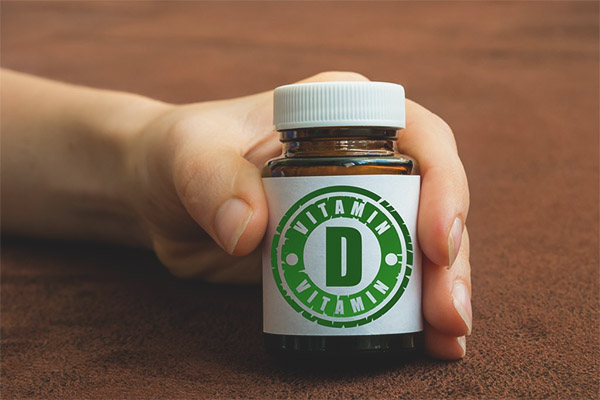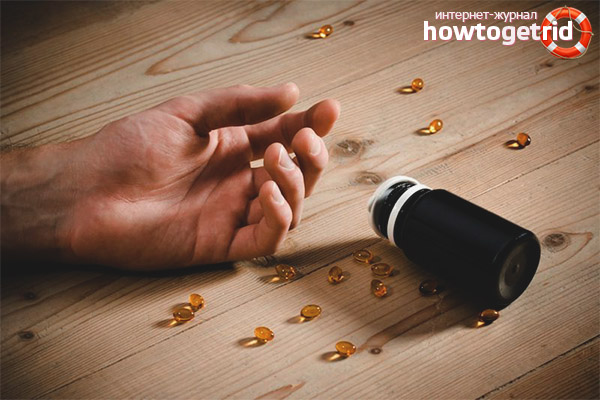The content of the article
Under the designation of vitamin D refers to the classification of a large group of biological substances that can be formed in the tissues due to exposure to ultraviolet light. These biological substances are fat soluble and are present in cells of both plant and animal origin.
It is worth noting that a certain part of vitamin D can be synthesized by the human body independently. However, the bulk of the vitamins of this group enters the human body from the outside, after eating, which is contained in significant quantities. In large quantities, this vitamin is found in fish oil, certain types of algae, as well as in some varieties of fish, which are distinguished by a high content of fat.In smaller quantities, it is present in such foods as cheese, cream and other products made from milk. Also, this vitamin can be found in butter, caviar or in wild mushrooms that have grown in the wild.
What are the functions of vitamin D?
Vitamin D is a very unique biologically active substance that is able to combine the functions of both the vitamin and certain functions of hormones. Vitamins of this group are able to exert a strong influence on the state of intestinal cells, actively stimulating the synthesis of special carrier proteins, which are necessary for the transportation of such a mineral as calcium.
In addition, the presence in the human body of vitamin D is necessary for the stable operation of the kidneys and all muscle groups. It is able to enhance the process of reabsorption of Ca2 +. However, the main task of this vitamin is to ensure an uninterrupted absorption process in the body of such minerals as calcium and phosphorus. These elements are absorbed in the intestine due to the calcium binding protein, the production of which in the body is highly dependent on vitamin D.In addition, the vitamins of this group perform in the body such functions as:
- take an active part in the process of monocyte synthesis;
- inhibit the formation of cancer cells;
- regulate the amount of insulin in the body.
Quite often, vitamins of this group are used in dermatology, because they are able to stimulate the active growth of cells and proliferation. Also, vitamin D is needed in the body to ensure proper neuromuscular interaction.
Overdose - the main symptoms
It should be noted that overdose and intoxication of the body with this vitamin can be both chronic and acute.Overdose of acute nature is most common in children whose age does not exceed 2 years. It may appear as a result of taking large doses of foods or drugs that contain vitamin D within 14-21 days. Also, an overdose of this vitamin may appear in people who are individually intolerant and are too sensitive to vitamins of group D.
In acute intoxication of the body with vitamin D, a person has very acute symptoms, in which first you can observe the primary signs of dehydration:
- Lack of appetite.
- Weakness.
- Lethargy.
- An overwhelming sense of thirst.
- Drowsiness.
- The emergence of nausea and gagging.
- Frequent urination.
Quite often, during acute intoxication of the body with vitamin D, an unstable stool may appear in a person, during which diarrhea begins to alternate with the occurrence of constipation. Also during intoxication of this type, dryness may occur in the area of the mucous membrane and skin. Quite often, so-called clonic-tonic convulsions or loss of consciousness for a short period of time occur.
For the development of intoxication of the body with vitamin D, which is of a chronic nature, a long period of time (at least 6 months) is required, during which a person consumes a large amount of vitamins of this group with food or with medication. As the main symptoms of chronic intoxication of the body with vitamin D imply:
- the appearance of irritability;
- high fatigue;
- weight loss;
- the appearance of seizures;
- the occurrence of pain in the muscles.
In addition, as a result of chronic intoxication with this vitamin, a person may experience disturbances in the phases of sleep and wakefulness, and the liver and spleen may increase in size. Also, this type of intoxication is dangerous for health because it significantly weakens the body's immune system. This is fraught with the emergence of various kinds of infectious and colds, which are often accompanied by inflammatory processes of varying severity.
Also the result of a chronic overdose of the body is that vitamin D begins to have a toxic effect on the cell membrane.Because of this, there is a violation in the process of metabolism in the body, which leads to a strong acidification of the internal environment of the body.
First aid in case of overdose
If a person at one time consumed a critical dose of vitamin D, then in this case, first of all, you need to do a gastric lavage. To do this, use about one liter of warm, clear water or prepare a weak solution using ordinary potassium permanganate. Then you need to provoke the occurrence of gag reflex.
Also, in case of drinking excessive amounts of vitamins of group D, you need to use a salt laxative. Alternatively, you can use absorbents. The most famous of these are activated carbon or polysorb. The dosage of consumed absorbents should be calculated according to the following formula: one tablet of the drug per 10 kilograms of the total weight of the human body.
Attention! It should be noted that there are no special antidotes that could eliminate intoxications that have arisen in the body due to excessive consumption of vitamin D. However, in order to minimize its harmful effects on the body in the event of the first signs of intoxication, it is recommended to use vitamin E.
When do you need medical care?
Emergency medical care, in the event of the appearance of severe symptoms of an overdose of vitamin D, is needed if the first signs of intoxication have appeared in a pregnant woman, an elderly person, or a young child. Also, do not delay with a visit to the doctor if you experience persistent vomiting or diarrhea.
Qualified medical care is necessary when a person has a strong convulsion or headache due to the onset of intoxication of the body with vitamin D. In addition, if the intoxication of the body is accompanied by the release of vomit or feces, in which blood is present, then this is also a very serious reason to immediately seek help from a medical institution.
A person, depending on the severity of his state of health and the resulting level of intoxication, can be hospitalized or one can undergo the necessary outpatient treatment. During the treatment of vitamin D intoxication, the patient is prescribed a strict diet that eliminates or severely limits the consumption of foods high in calcium or vitamin D.
Also during treatment isotonic solution is used, which is injected into the body parenterally. Its use is necessary in order to restore the level of fluid that the body has lost as a result of severe intoxication and to alleviate the symptoms that arise as a result of an overdose of vitamin D.
In addition, to eliminate the pronounced symptoms of an overdose of vitamin D, the patient may be assigned vitamins of group A or B. In order to prevent the occurrence of bacterial infections that may appear in the body against the background of severe intoxication, the patient may be prescribed so-called antibiotic therapy. In order to normalize the intracellular processes in the body, which may be impaired as a result of excessive consumption of vitamin D, glucocorticosteroids are used.
Consequences due to excessive consumption of vitamin D
Excessive consumption of vitamin D can lead to overdose and intoxication in the human body. This is fraught with the appearance of such side effects - such as:
- the occurrence of toxic hepatitis;
- development of renal failure;
- possible failure of the thyroid gland.
In addition, in the event of a severe overdose of the body with a vitamin D group, a person may begin the process of deposition of crystals of such a mineral as calcium in the kidneys. Because of this, a disease like kidney failure can begin.
Also, as a result of excessive consumption of vitamins of group D, malfunctions of the cardiovascular system can occur. These failures are often accompanied by a sharp increase in pressure, which can trigger a stroke or kidney failure.
Video: overdose of vitamins and their lack












To send